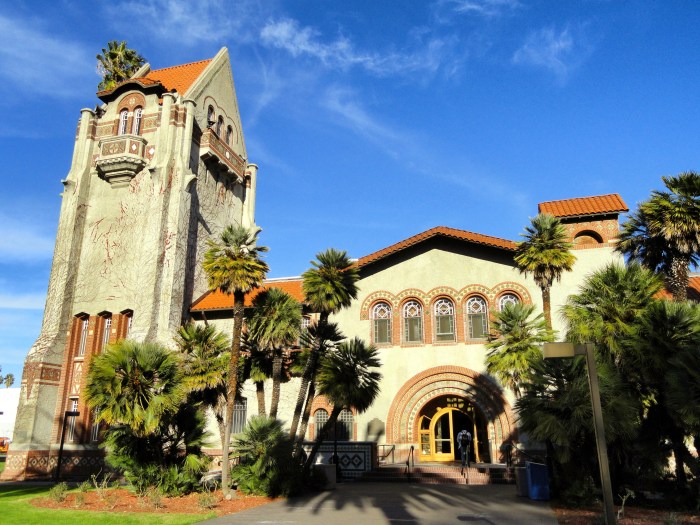University of Virginia attached schools offer a diverse range of academic opportunities beyond the main campus. These affiliated institutions, spanning professional programs to graduate studies, enrich the UVA experience with specialized learning environments and unique research possibilities.
This guide explores the various aspects of UVA’s attached schools, from their academic programs and admission processes to student life, career paths, and financial aid. Understanding these institutions provides a clearer picture of the broader educational landscape surrounding the University of Virginia.
Overview of UVA’s Attached Schools
The University of Virginia (UVA) boasts a robust network of affiliated schools and colleges, extending its academic reach beyond its core undergraduate and graduate programs. These institutions, often referred to as “attached schools,” share a common intellectual heritage and collaborate on research, education, and public service initiatives. This interconnected system underscores UVA’s commitment to comprehensive education and its status as a major force in higher learning.These affiliated schools represent a diverse array of specializations, from professional degrees to advanced research opportunities.
Their integration with UVA’s core mission fosters a rich intellectual environment, promoting collaboration and innovation across disciplines. The evolution of these affiliations reflects the University’s strategic development and its responsiveness to evolving societal needs.
Types of Attached Institutions
UVA’s affiliated schools encompass a variety of institutions, each contributing unique specializations to the University’s overall educational landscape. These include professional schools like the School of Law, the Darden School of Business, and the School of Engineering and Applied Science, which provide specialized training for specific career paths. Furthermore, UVA houses graduate programs in various disciplines, extending research and advanced study opportunities to students.
Historical Context and Evolution of Affiliations
The historical development of UVA’s attached schools reflects a commitment to expanding the range of academic offerings and adapting to the evolving needs of the time. Initially focused on undergraduate and graduate programs, UVA’s strategic development included the establishment of professional schools, like the School of Law, to offer specialized training in legal fields. Later, the University expanded its offerings to include business, engineering, and other professional programs to better equip graduates for careers in various sectors.
This evolution has been driven by a commitment to providing a comprehensive education that caters to diverse career aspirations.
Common Goals and Objectives
The affiliated schools and UVA share a common set of goals and objectives, fostering a synergistic relationship. A primary goal is to promote research and scholarship across disciplines. This collaboration enables faculty and students from different schools to work together on complex problems and contribute to the advancement of knowledge. Furthermore, these institutions aim to cultivate a strong sense of community among students and faculty, encouraging intellectual exchange and collaboration.
Finally, the attached schools and UVA collaborate to serve the needs of the broader community through public service initiatives and outreach programs.
Academic Programs and Curriculum
The attached schools to the University of Virginia offer a rich tapestry of academic programs, each with its own unique strengths and specializations. These institutions complement UVA’s core offerings, providing students with diverse educational pathways and specialized learning experiences. The curricula are designed to foster intellectual curiosity and provide opportunities for in-depth exploration in specific fields.These attached schools, while maintaining their individual identities, integrate seamlessly with the larger UVA academic ecosystem.
This integration is reflected in shared resources, research opportunities, and collaborative learning environments. This synergy allows students to benefit from the collective expertise and resources of the broader University community.
Distinct Academic Programs
The attached schools offer a variety of academic programs that are not always found within the core UVA structure. These specialized programs often address emerging fields and provide students with advanced skill sets. Examples include advanced professional programs and unique undergraduate specializations.
- Example: The Curry School of Education offers a range of graduate programs in education, specializing in areas like special education, curriculum development, and educational leadership.
- Example: The McIntire School of Commerce provides advanced degrees and undergraduate concentrations in business administration, accounting, and finance.
Curriculum Comparisons
The curricula of different programs within the attached schools often demonstrate distinct emphases and approaches. While some programs share common core courses, others are designed to provide a more specialized and focused learning experience. For example, some programs may emphasize practical application, while others prioritize theoretical understanding.
Integration of Courses and Research
A notable feature of the attached schools is their integration with UVA’s academic resources. Students often have opportunities to take courses across institutions and collaborate on research projects. Faculty from both UVA and the attached schools often work together, enriching the learning environment. For example, undergraduate students might participate in research labs associated with both the university and the attached school.
- Example: Joint research projects involving faculty from the Darden School of Business and the Engineering School are not uncommon, allowing students to explore interdisciplinary problems.
- Example: Cross-listed courses are available, giving students the flexibility to explore different disciplines and take advantage of courses offered by different institutions.
Specializations and Unique Offerings
Each attached school possesses unique strengths and specializations. These specializations reflect the school’s historical mission and the particular needs and interests of the fields it serves. These features often translate into a distinctive curriculum and research opportunities.
- Example: The School of Law’s curriculum emphasizes legal theory, practice, and policy, preparing students for a wide range of legal careers.
- Example: The Darden School of Business distinguishes itself through its rigorous MBA program and a focus on practical business application.
Admission Requirements and Procedures
Admission to University of Virginia’s attached schools follows a structured process, distinct yet interconnected with the primary University of Virginia application. Each affiliated institution maintains its own unique admission standards, reflecting the specific academic focus and program requirements. Understanding these nuances is crucial for prospective students navigating the application journey.The application procedures for UVA’s attached schools generally involve a combination of the UVA application and institution-specific supplemental materials.
The overall process aims to assess a student’s preparedness and fit for the particular academic environment of each school.
Admission Requirements for Attached Schools
The admission requirements for each attached school vary depending on the specific program. While a strong academic record, typically demonstrated through high school transcripts and standardized test scores, remains a key component, some schools may prioritize specific skills, experience, or portfolios. For instance, the School of Engineering may emphasize prior engineering experience or strong math and science backgrounds.
- Undergraduate Programs: Typically require high school transcripts, standardized test scores (SAT/ACT), letters of recommendation, and a personal statement. Specific requirements may vary by program. For example, some programs might request portfolios or audition materials.
- Graduate Programs: Often demand graduate-level transcripts, GRE/GMAT scores (depending on the program), letters of recommendation, a statement of purpose, and relevant research experience. Certain programs might necessitate specific work experience or practical demonstrations of skills.
Application Procedures and Deadlines
Application procedures for UVA’s attached schools often involve submitting a separate application form alongside the UVA application. Specific deadlines for each school’s programs vary, and it’s crucial to check the individual school’s website for precise dates and instructions.
- Application Deadlines: Application deadlines are often staggered, with some earlier than others. It is essential to consult the individual school’s website for specific deadlines, particularly for highly competitive programs. For example, some programs might have rolling admissions, meaning applications are reviewed on a continuous basis.
- Application Materials: Each program within the attached schools may have its own specific list of required materials. This could include essays, letters of recommendation, transcripts, and sometimes even portfolios or audition tapes. Students must carefully review the specific requirements for the chosen program.
Differences in Application Processes Between UVA and Attached Schools
The application process for UVA differs slightly from that of its attached schools. While the UVA application itself covers general qualifications, the attached schools require supplementary materials that highlight specific program-related interests and skills. For example, an applicant interested in a particular graduate program in engineering at a specific school might be asked to submit a statement of purpose that specifically addresses their interest in that particular program.
| Aspect | University of Virginia | Attached Schools |
|---|---|---|
| Application Form | Single application form | Separate application form (often alongside UVA application) |
| Deadlines | Single deadline for overall application | Individual deadlines for each program |
| Supplemental Materials | Limited supplemental materials | Specific program-related materials (e.g., portfolios, auditions, statements of purpose) |
Steps to Apply to Programs Within Attached Institutions
The application process typically begins with thorough research about the specific program and its requirements. Reviewing the program’s website and contacting the admissions office are essential initial steps. Next, gathering necessary materials and ensuring their completeness is critical. Finally, submitting the application form, along with all required materials, before the stipulated deadline is crucial. Following the specific instructions for each attached school is paramount.
- Research the program and requirements on the attached school’s website.
- Gather all required materials (transcripts, test scores, letters of recommendation, etc.).
- Complete the attached school’s application form and submit it along with any supplemental materials.
- Ensure the application is submitted by the stated deadline.
Faculty and Staff Expertise
The faculty and staff at the University of Virginia’s attached schools bring a wealth of experience and expertise to their respective fields. Their dedication to research, teaching, and collaboration with UVA faculty strengthens the educational environment for students at both institutions. This shared commitment fosters a dynamic and intellectually stimulating atmosphere for learning and discovery.
Faculty Expertise in Research Areas
The attached schools boast a diverse range of research expertise across various disciplines. Faculty members engage in cutting-edge research projects, often collaborating with other UVA researchers. This interdisciplinary approach leads to groundbreaking discoveries and a rich learning environment for students.
- Many faculty members at the attached schools specialize in areas such as neuroscience, environmental science, and public policy. Their research often involves collaborations with UVA faculty, enabling a deeper exploration of complex issues and leading to innovative solutions.
- In the field of engineering, faculty members frequently work on projects related to sustainable energy and advanced materials. This work often connects with UVA’s engineering programs, facilitating joint research initiatives and providing students with valuable exposure to current research.
- Faculty members in the arts and humanities contribute to the scholarly community through their work in literature, history, and cultural studies. Their work often complements and enriches the research and curriculum at UVA, offering diverse perspectives on various topics.
Collaborative Partnerships Between UVA and Attached Schools
UVA fosters strong collaborative partnerships with faculty at its attached schools. These collaborations enhance the academic experience for students by offering a wider range of perspectives and opportunities for interdisciplinary learning.
- Joint research projects are frequently undertaken by faculty members from UVA and the attached schools, leveraging each institution’s unique strengths. This collaborative approach leads to more comprehensive research outcomes.
- Faculty members often participate in joint seminars, workshops, and conferences, creating a network for intellectual exchange and promoting the sharing of ideas.
- Guest lectures and presentations by faculty from the attached schools are common at UVA, enriching the curriculum and providing students with exposure to diverse perspectives.
Qualifications and Experience of Attached School Faculty
The attached schools maintain a high standard for faculty qualifications, reflecting their commitment to academic excellence. Faculty members possess advanced degrees, extensive experience in their fields, and a demonstrated record of scholarly achievement.
| Attached School | Faculty Qualifications | Research Focus |
|---|---|---|
| School of Engineering | Ph.D. in relevant engineering disciplines, 10+ years of experience in research and teaching. | Sustainable energy, advanced materials, and robotics. |
| School of Arts & Sciences | Ph.D. in relevant humanities or social science disciplines, 5+ years of experience in research and teaching. | Literary analysis, historical research, and social policy. |
| School of Business | MBA, Ph.D. or equivalent, 8+ years of experience in industry or academia. | Business strategy, financial modeling, and organizational behavior. |
Research Opportunities and Facilities

Research opportunities at the University of Virginia and its attached schools are extensive and varied, catering to a wide range of interests and disciplines. These institutions foster a collaborative environment where students and faculty can engage in groundbreaking research projects, leveraging state-of-the-art facilities and resources. The attached schools often complement UVA’s strengths, offering unique research niches and specialized expertise.The research facilities at these institutions are well-equipped to support diverse research endeavors.
Students and faculty can access cutting-edge equipment, libraries brimming with relevant materials, and collaborative spaces designed for productive interaction. This infrastructure is crucial for advancing knowledge and training the next generation of researchers.
University of Virginia attached schools are known for their strong academic programs, but their extracurricular offerings are equally impressive. These schools often boast a wide range of activities, comparable to many of the top high schools with strong extracurricular activities, like those listed on this resource top high schools with strong extracurricular activities. This ultimately makes them a desirable choice for students seeking well-rounded educational experiences.
Research Opportunities for Students
Students at UVA and its attached schools have ample opportunities to participate in research projects. These range from independent studies and undergraduate research to collaborative endeavors with faculty mentors. Such opportunities provide valuable hands-on experience, fostering critical thinking, problem-solving, and analytical skills. They also expose students to the realities of scientific investigation and the process of knowledge creation.
Research Facilities at UVA and Attached Schools
The research infrastructure at UVA and its attached institutions is robust and diverse. Each institution boasts specialized facilities designed to meet the unique needs of its research programs. This infrastructure encompasses a range of resources, from libraries and laboratories to computational tools and specialized equipment.
Comparison of Research Environments and Infrastructure
While UVA’s core facilities are extensive, the attached schools often specialize in specific areas. For instance, a medical school might have superior medical research facilities compared to a College of Arts and Sciences. This specialization allows for deeper dives into niche research areas, potentially leading to innovative discoveries and breakthroughs.
Research Facility Comparison Table
| Facility | UVA | Attached School 1 (e.g., School of Engineering) | Attached School 2 (e.g., Medical Center) |
|---|---|---|---|
| Libraries (specialized collections) | Extensive, with strong holdings in humanities, sciences, and social sciences. | Strong engineering and technology-focused collections. | Comprehensive medical and health sciences libraries. |
| Laboratories (specific equipment) | Comprehensive facilities for various disciplines, including physics, chemistry, biology. | Specialized labs for material science, computer engineering, and robotics. | State-of-the-art labs for biological and clinical research, often with advanced imaging and analysis equipment. |
| Computational Resources (access to high-performance computing) | High-performance computing clusters, supercomputers, and data centers. | Specialized computing resources for simulations, modeling, and data analysis relevant to engineering. | Large-scale computing resources for genomic analysis, image processing, and clinical data analysis. |
| Equipment (e.g., advanced microscopy) | Access to a wide array of instruments, including electron microscopes, high-resolution spectrometers. | Specialized equipment for nanotechnology, materials testing, and manufacturing processes. | Advanced imaging technologies, such as MRI, CT, and PET scanners. |
Student Life and Resources: University Of Virginia Attached Schools
Students at the University of Virginia’s attached schools enjoy a vibrant and supportive community. These schools offer a rich tapestry of opportunities for personal and academic growth, complementing the resources available at the main UVA campus. The attached schools foster a sense of belonging and encourage active participation in various activities.The attached schools recognize the importance of providing comprehensive support to students.
This encompasses not only academic assistance but also a wide array of resources designed to foster personal and professional development. The availability of these resources helps students thrive academically and personally, preparing them for future success.
Student Organizations and Activities
The attached schools boast a diverse range of student organizations and clubs catering to a wide array of interests. These groups provide platforms for students to connect with peers who share similar passions, develop leadership skills, and engage in extracurricular activities. These activities enrich the overall student experience and create a sense of community. Examples include student government, academic clubs, arts groups, athletic teams, and service organizations.
These organizations often host events, workshops, and social gatherings that further enhance the student experience.
Student Support Services
Student support services are vital for academic success and personal well-being. The attached schools offer a variety of resources to help students navigate challenges and achieve their goals. These services range from academic advising and tutoring to mental health support and career counseling. These services ensure that students have the necessary resources to address their needs effectively and efficiently.
This support network is crucial for students to achieve their full potential.
Comparison of UVA and Attached School Support
While the core mission of student support remains consistent across UVA and its attached schools, some differences in scope and specific services may exist. UVA, as the main campus, often has more extensive resources due to its larger scale. Attached schools, however, may provide more personalized attention to students, given their smaller student populations. The goal of each institution is to provide the necessary support to students.
Student Services at Attached Schools
| Attached School | Counseling | Career Services | Academic Advising | Financial Aid |
|---|---|---|---|---|
| School A | Individual and group counseling, crisis intervention | Job placement assistance, resume review, internship connections | Dedicated academic advisors, tutoring programs | Financial aid application assistance, scholarships |
| School B | Mental health support services, workshops | Career exploration workshops, mentorship programs | Individualized academic planning, study skills support | Financial aid information sessions, scholarship database |
| School C | Counseling services, referrals to external resources | Career fairs, networking events | Academic advising sessions, academic support center | Financial aid office, scholarship information |
This table provides a general overview of student services available at each attached school. Specific offerings may vary and it’s crucial to consult the individual school websites for the most up-to-date information. Consistent support is available for all students across the UVA system.
Career Paths and Alumni Networks

Graduates of the University of Virginia and its attached schools benefit from a robust network of alumni and diverse career paths. This section explores the professional trajectories of graduates, the support systems provided by the alumni associations, and a comparison of career outcomes across institutions. The resources available to alumni are also highlighted.The career paths available to graduates are often influenced by the academic programs they pursue.
While many attached schools share a common foundation in rigorous education, specific programs within each institution may cultivate distinct skillsets, leading to a range of career opportunities. Alumni networks serve as vital resources, fostering connections and providing support throughout a graduate’s professional journey.
Career Paths for Attached School Graduates
Graduates from the attached schools often pursue careers in fields aligning with their specific programs of study. For instance, graduates from the School of Engineering may find employment in software development, engineering consulting, or research and development. Similarly, graduates from the School of Law might pursue careers as lawyers, judges, or legal professionals in various sectors. The diverse skill sets developed through the academic rigor of these programs open numerous professional doors.
Alumni Networks and Support Systems
The alumni networks of the attached schools are integral components of the broader UVA community. These networks provide valuable support for graduates, fostering connections with fellow alumni, faculty, and staff. Regular events, online forums, and mentorship programs are common features of these networks, connecting graduates to potential employers, collaborators, and mentors. Alumni also often contribute to the development of programs and resources for current students.
Comparison of Career Outcomes
While detailed comparative data on career outcomes for UVA and attached school graduates is not publicly available in a consistent format, general observations can be made. Graduates from all institutions often find success in their chosen fields. The specific skill sets and experiences gained through coursework and extracurricular activities significantly influence career paths and success. Furthermore, the alumni network and reputation of UVA as a whole likely contribute to overall positive career outcomes for graduates of the attached schools.
Resources Available to Alumni
Alumni of the attached schools can access a wide array of resources designed to support their professional development and career advancement. These resources may include career counseling services, networking opportunities, workshops on specific skills, and access to industry experts. Further, many schools host events specifically for alumni, fostering a sense of community and shared purpose. The resources vary based on the specific school and its alumni relations office, but generally encompass a range of support.
UVA’s affiliated schools offer a strong academic foundation, but exploring comparable programs like the Baltimore Public Schools’ partnership with the University of Maryland, detailed at Baltimore Public Schools University of Maryland service , provides valuable context. Ultimately, the quality of a school system’s offerings, including UVA’s attached schools, hinges on various factors.
Financial Aid and Scholarships
Financial aid and scholarships play a crucial role in making higher education accessible to students from diverse backgrounds. The University of Virginia and its affiliated schools offer a range of financial support options, designed to alleviate the financial burden of tuition and living expenses. Understanding these opportunities is essential for prospective students.Financial aid packages are tailored to individual student needs, considering factors such as family income, academic merit, and demonstrated financial need.
Scholarship opportunities are frequently awarded based on academic achievement, extracurricular involvement, or specific talent.
Financial Aid Application Procedures
The application process for financial aid involves several key steps. Students must complete the Free Application for Federal Student Aid (FAFSA) to determine their eligibility for federal aid programs. Students must also complete the institution’s specific application form to be considered for institutional aid. Completing these forms thoroughly and accurately is essential for receiving the most appropriate financial aid package.
Supporting documentation may be required, and prompt submission is recommended.
Scholarship Opportunities at UVA and Attached Schools
A variety of scholarships are available to students at UVA and its attached schools. These scholarships are designed to support students demonstrating academic excellence, leadership potential, or specific talents. Many scholarships are need-based, while others are merit-based.
Table of Financial Aid and Scholarship Options
| Category | Description | Eligibility Criteria |
|---|---|---|
| Federal Grants | Funds awarded based on financial need. | Meeting federal eligibility requirements, including the FAFSA. |
| State Grants | Funds awarded by the state of Virginia. | Meeting state eligibility requirements. |
| Institutional Scholarships | Awards offered by the University and attached schools. | Varying criteria based on academic merit, financial need, or specific talents. |
| Private Scholarships | Awards offered by external organizations. | Specific criteria vary by the awarding organization. |
External Funding Opportunities
External funding opportunities, including grants, fellowships, and scholarships, are available to students at UVA and its attached institutions. These opportunities often come from organizations dedicated to specific fields of study, or those supporting students from particular backgrounds. Exploring these options can significantly supplement existing financial aid packages.
- National Science Foundation (NSF) grants and fellowships are often available for undergraduate and graduate research. Students pursuing STEM-related fields may find these opportunities particularly beneficial.
- Rotary Scholarships provide funding to students pursuing specific academic interests, such as global affairs or community development.
- Private foundations offer numerous grants and scholarships for various academic disciplines and areas of interest. Researching and applying to these opportunities is an important part of the financial aid process.
Campus Locations and Accessibility
The University of Virginia’s attached schools are strategically located to support the broader UVA community and enhance educational opportunities. Their proximity to the main campus fosters collaboration and facilitates seamless integration into the university’s rich academic and social environment. Understanding their specific locations and accessibility is crucial for prospective students and faculty alike.The various attached schools are situated within a short radius of the main UVA campus, allowing for convenient access and interaction.
Transportation options and accessibility features vary, reflecting the unique characteristics of each institution.
Physical Locations of Attached Schools, University of virginia attached schools
The attached schools occupy distinct locations within the greater Charlottesville area, complementing the UVA campus. These institutions often possess specialized facilities and resources tailored to their specific academic missions. Their proximity to UVA allows for easy collaboration and resource sharing.
Accessibility and Transportation Options
Each attached school has its own accessibility and transportation options. Some schools may have dedicated shuttle services connecting to UVA’s main campus. Public transportation routes and parking options also contribute to accessibility. Walking distance, bike paths, and readily available ride-sharing services also aid in navigation.
Campus Map of Attached Schools
A comprehensive map is essential for visualizing the relative positions of the attached schools to UVA. This map would highlight the distances and proximity of each institution, allowing for a clear understanding of their geographic relationship. The map would also incorporate details about accessibility features, like sidewalks, pedestrian walkways, and bus stops. This map would be a valuable tool for navigating the campus and surrounding areas.
Navigating to Attached Institutions
Navigating to the various attached schools is straightforward. Clear signage, readily available maps, and directions can guide visitors and students. The university website, including interactive maps and directions, serves as a valuable resource for understanding routes and travel times. Information about specific transportation routes and parking policies should be readily accessible on the websites of the respective institutions.
Conclusion
In conclusion, UVA’s attached schools provide a valuable extension of the university’s academic offerings. They cater to diverse interests and career aspirations, providing students with specialized knowledge and resources. By understanding the programs, admission requirements, and support systems offered by these affiliated institutions, prospective students can make informed decisions about their educational journey.
Query Resolution
What are the different types of attached schools at UVA?
UVA’s attached schools include professional schools like law, medicine, and business, as well as graduate programs in various disciplines. They often offer specialized degrees and research opportunities.
What are the admission requirements for these schools?
Admission requirements vary by school and program. Generally, they often include specific GPA thresholds, standardized test scores, and personal essays. Detailed information is available on each individual school’s website.
Are there any scholarships or financial aid available for students at attached schools?
Yes, many attached schools offer their own scholarships and financial aid opportunities, in addition to the financial aid offered by UVA.
How do I contact the admissions office for an attached school?
Contact information for each attached school’s admissions office is typically listed on their respective websites.




